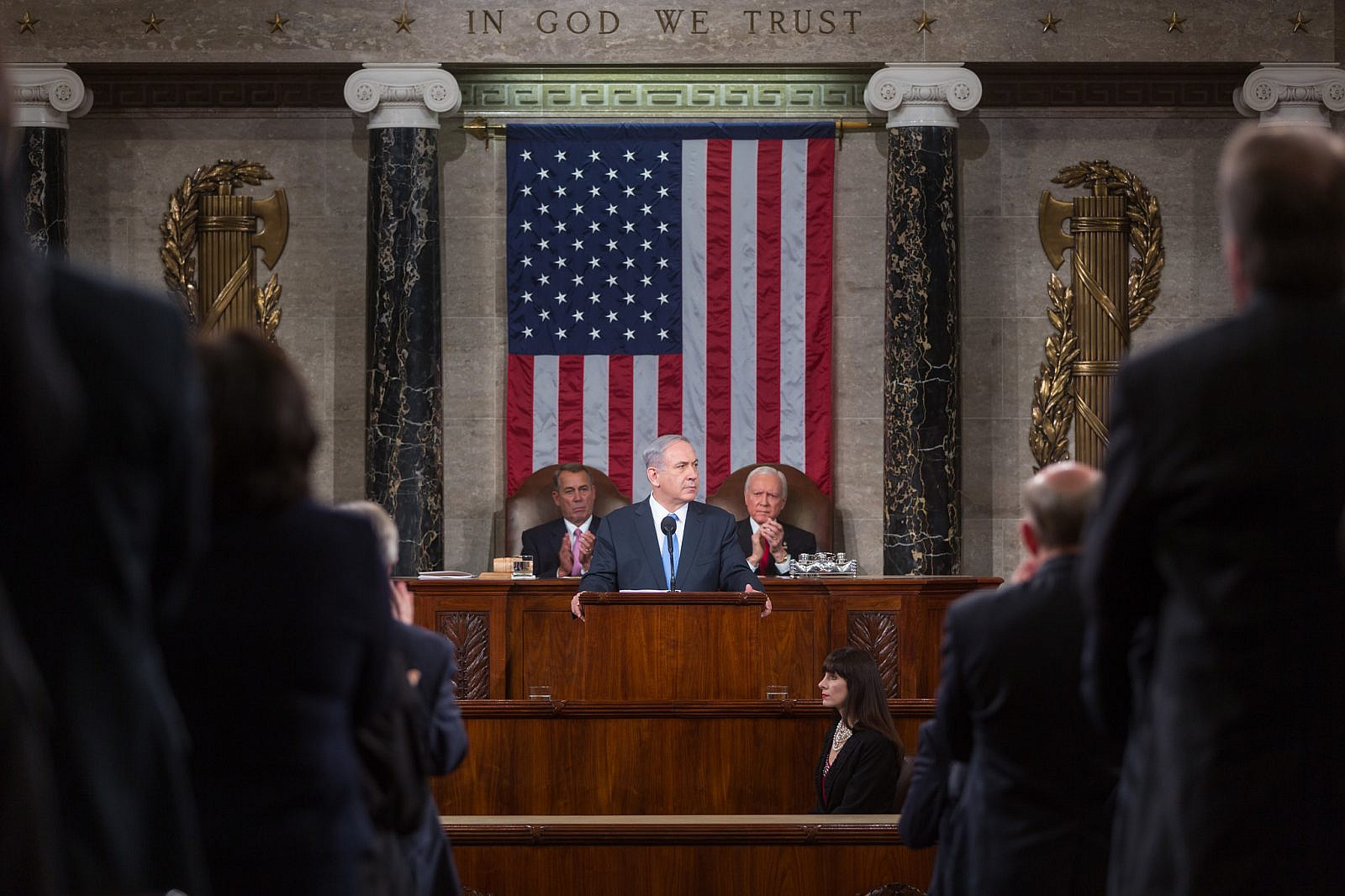A year into the Democratic Party’s presidential primary, the top candidates have coalesced around a general consensus on how to reverse the Trump administration’s rightward lurch on Israel. This consensus includes: restoring U.S. funding to UNRWA, the UN agency for Palestinian refugees; working toward a two-state solution; and opposing Israeli settlements.
But if that is all the candidates pursue, it would simply be a return to Obama-era policies. There’s a lot more a Democratic president like Bernie Sanders or Elizabeth Warren should do — and they can do it without Congress.
Once in the White House, and with the help of executive branch agencies, the president would have the legal authority to withhold U.S. weapons transfers to Israel and to investigate, or even curb, American nonprofits that receive tax-exempt donations and send that money to Israeli settlements. The U.S. Constitution gives the executive branch a great deal of power over foreign policy, and it’s time a Democratic president uses that authority to end Israeli human rights violations.
It would not be easy; Congress would give a great deal of pushback. But if a Democratic president is willing to fight Israel’s allies in Washington, they could potentially challenge the decades-old status quo, center Palestinian human rights in U.S. policy-making, and open a real debate about the nature of America’s relationship to Israel.
The most straight-forward tools concern the more than $3 billion in U.S. military support sent annually to Israel. Under the 1961 Foreign Assistance Act, the U.S. is prohibited from sending weapons to countries that engage in a “consistent pattern of gross violations of internationally recognized human rights.” The 1976 Arms Export Control Act says that the U.S. should only transfer arms to countries for self-defense. Various bilateral agreements signed by U.S. and Israeli officials are supposed to place limits on the Israeli military’s use of American weapons.

There is also the Leahy Law (named after Patrick Leahy, the Vermont Senator who wrote the legislation), which some Palestinian rights advocates see as more politically feasible to use because it applies to individual military units, rather than an entire foreign army. Passed in 1997, it prohibits the U.S. from sending weapons to or training individuals or units that violate human rights.
Israel’s extrajudicial killings of Palestinian protesters, and its bombardments of Gaza, could easily fall under all of these laws.
The problem with these regulations is that they are sporadically enforced, paving the way for American weapons to flow to countries around the world with terrible human rights records, from Saudi Arabia to Honduras. But since the laws are already on the books, a president and his or her cabinet secretaries simply need to decide to take them seriously and implement them, including on countries that are historically allies of the U.S. like Israel.
The next president can begin by appointing Secretaries of State and Defense — the agencies that approve weapons sales and foreign training — who commit to looking more closely at whether U.S. weapons sales to Israel and training of Israeli forces are consistent with its laws.
The idea of curbing U.S. arms sales to Israel may sound fantastical, but there’s precedent for applying these laws to do so.
In 1977, President Jimmy Carter warned Israel that it was in violation of the Arms Export Control Act when Israel used armored personnel carriers during its invasion of Lebanon that year, and threatened to stop weapons transfers if they continued to be used for offensive purposes. Israel got the message, and withdrew its forces. In 1982, President Ronald Reagan halted the sale of U.S. cluster bombs to Israel because the country dropped the munitions on civilian areas in Lebanon, a violation of U.S.-Israeli bilateral agreements on the use of such bombs.
What there is not precedent for, however, is a U.S. president addressing the American nonprofits that fund Israeli settlements in the occupied territories. Dozens of these organizations exist, funding everything from the radical extremists of Yitzhar to the home-evictors of Ateret Cohanim. According to a 2015 Haaretz investigation, pro-settler nonprofits gave Israeli settlements over $220 million from 2009 to 2013. These groups are subsidized by the American taxpayer, since their donations are exempt from dues collected by the U.S. government.

A U.S. president who wants to limit taxpayer subsidies for these settler nonprofits could appoint an Internal Revenue Service commissioner who would investigate such organizations, and ultimately revoke their tax-exempt status. The IRS has the authority to do so if a nonprofit’s actions go against “public policy.” That provision of U.S. law has been used before: in 1976, the IRS revoked the nonprofit status of Bob Jones University because the Christian campus banned interracial dating, a prohibition that violated Constitutional guarantees against racial discrimination. The Supreme Court upheld the IRS’ decision in 1983.
Another route would be to declare specific Israeli groups that receive American funding as terrorist entities. One obvious target would be Lehava, an Israeli group that has received U.S. donations and whose members have been linked to violent actions targeting Palestinians, including street gangs that beat up Palestinians and a 2014 arson attack on a Hebrew-Arabic school in Jerusalem.
Declaring such organizations as terrorists has also been done before. In 1997, the State Department put Kahane Chai, a group inspired by the far-right Rabbi Meir Kahane, on the department’s terrorist list, an action that prohibited U.S. citizens from giving funds to the group. Today, Kahane’s followers have moved to other groups, including Benzi Gopstein, who is now the leader of Lehava. T’ruah, an American Jewish group, has identified other pro-Kahane groups in Israel that receive U.S. donations, and in 2018 asked the IRS to revoke their tax exempt status.
If implemented by a Democratic president, these ideas would spark outrage among Israel’s allies in Congress. Representatives would have the ability to counter these moves through legislation that ties the president’s hands in implementing his or her decisions, and settler nonprofits themselves could take the matter to federal courts, thus slowing down the policies’ efficacy.
But even if that happens, a public fight between a president and Congress over whether to respect Palestinian human rights would be a victory in and of itself. It would create an unprecedented debate on U.S. complicity in Israel’s occupation, and allow American voters to see just how little Congress cares about Palestinian lives. A new president should use these tools if they really want to transform U.S. policy and reverse the entrenchment of Israeli apartheid.


